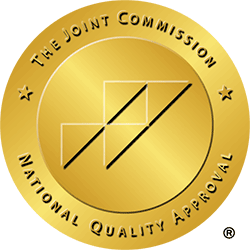
Wernicke-Korsakoff Syndrome (WKS) is a severe brain disorder often linked to long-term alcohol abuse and thiamine (Vitamin B1) deficiency. This condition, sometimes referred to as “alcoholic dementia,” affects memory, coordination, and cognitive function, leading to permanent brain damage if left untreated.
At BriteLife Recovery, we help individuals struggling with alcohol addiction understand the serious health consequences of chronic drinking and provide treatment to support long-term recovery. In this blog, we’ll explain what Wernicke-Korsakoff Syndrome is, how it develops, and how it can be prevented and treated.
What Is Wernicke-Korsakoff Syndrome?
Wernicke-Korsakoff Syndrome is a neurological disorder that occurs in two stages:
- Wernicke’s Encephalopathy – The acute phase, characterized by sudden and severe symptoms.
- Korsakoff’s Psychosis – The chronic phase, which causes long-term cognitive and memory problems.
While Wernicke’s Encephalopathy can sometimes be reversed with immediate treatment, Korsakoff’s Psychosis often results in permanent brain damage.
What Causes Wernicke-Korsakoff Syndrome?
The primary cause of Wernicke-Korsakoff Syndrome is severe thiamine (Vitamin B1) deficiency. Thiamine is essential for brain function, and without it, the brain cannot properly process glucose, leading to nerve and brain cell damage.
How Does Alcoholism Contribute to WKS?
Chronic alcohol use is the leading cause of WKS because:
- Alcohol Blocks Thiamine Absorption – Heavy drinking damages the digestive system, making it difficult for the body to absorb nutrients, including Vitamin B1.
- Poor Nutrition – Many individuals with alcohol addiction neglect proper nutrition, leading to vitamin deficiencies.
- Liver Damage – Alcohol-related liver disease affects how the body stores and processes thiamine.
While alcoholism is the most common cause, Wernicke-Korsakoff Syndrome can also develop due to eating disorders, prolonged vomiting, and severe malnutrition.
Symptoms of Wernicke-Korsakoff Syndrome
Wernicke’s Encephalopathy (Acute Phase):
- Confusion and disorientation
- Loss of muscle coordination (ataxia)
- Difficulty walking
- Vision problems, including double vision and drooping eyelids
- Tremors and weakness
Without treatment, Wernicke’s Encephalopathy can progress into Korsakoff’s Psychosis.
Korsakoff’s Psychosis (Chronic Phase):
- Severe memory loss (especially short-term memory)
- Inability to form new memories
- Confabulation (making up stories without realizing it)
- Hallucinations
- Personality changes, including apathy and lack of emotional response
Many individuals with Korsakoff’s Psychosis struggle with permanent cognitive impairment, making daily tasks and independent living challenging.
Can Wernicke-Korsakoff Syndrome Be Treated?
The earlier WKS is detected, the better the chances of recovery. Treatment focuses on:
- Thiamine Supplements – High doses of Vitamin B1 can help slow or stop the progression of the disease.
- Proper Nutrition – A balanced diet rich in vitamins and essential nutrients supports brain health.
- Alcohol Cessation – Quitting alcohol is critical to preventing further brain damage. Medical detox and rehab provide the best chance for long-term sobriety.
While early intervention can reverse some symptoms, individuals in the late stages of Korsakoff’s Psychosis may suffer permanent memory loss and cognitive decline.
Preventing Wernicke-Korsakoff Syndrome
The best way to prevent WKS is to:
- Limit alcohol consumption or seek treatment for alcohol addiction
- Maintain a balanced diet with thiamine-rich foods (whole grains, lean meats, dairy, nuts, and legumes)
- Take vitamin supplements if at risk of deficiency

Get Help at BriteLife Recovery
At BriteLife Recovery, we provide comprehensive alcohol addiction treatment to help individuals stop drinking, improve their nutrition, and prevent long-term health complications like Wernicke-Korsakoff Syndrome.
If you or a loved one is struggling with alcohol addiction, don’t wait—seek treatment today. Sobriety can protect your brain, restore your health, and improve your quality of life.



